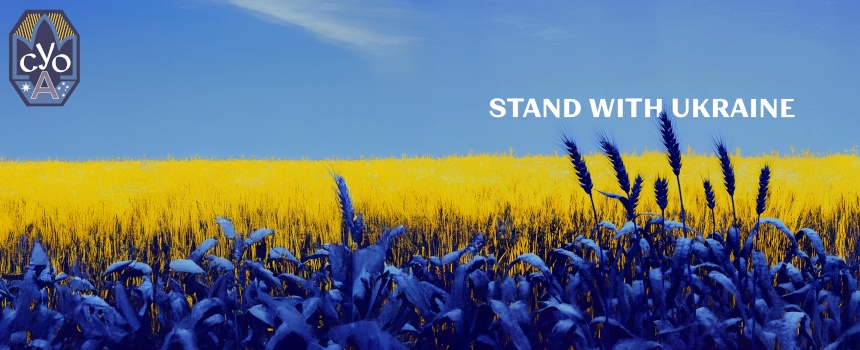12 February 2022
- The comprehensive package of measures that Ukraine proposed last November in response to Russian military build-up along its border with Ukraine has become an effective tool in deterring the Russian Federation from further aggression. These measures include:
- Active diplomacy: during the recent two weeks, Kyiv has literally become the epicenter of global diplomacy with more than twenty high-level foreign delegations visiting Ukraine to express their solidarity amid Russia’s aggressive actions. The President of Ukraine, the Minister of Foreign Affairs and other government officials have held about the same number of phone calls with their foreign counterparts. All our partners have made it very clear to Moscow: Russia will pay an unprecedentedly high price if it decides to launch a new military operation on Ukrainian territory.
- Ukraine and its partners are closely working on de-escalation of the security situation and revival of political settlement of the armed conflict with Russia, primarily in the framework of the Normandy Format and Trilateral Contact Group. We highly appreciate the leadership of Germany and France that has unblocked the meetings of the advisers to the leaders of the Normandy Four countries. The first since 2019 in-person meeting of the advisors took place in Paris on 27 January and, following their agreement, the second meeting was convened in Berlin on 10 February. At both meetings, Ukraine focused, among other things, on the task of unblocking the work of the Trilateral Contact Group. This will allow progress on a number of agreements reached by the leaders of Ukraine, Germany, France and Russia following their summit in Paris in 2019.
- While our country has implemented its commitments made in Paris in 2019, Russia has implemented none. The Russian leadership must demonstrate political will and cease destructive practice of undermining the TCG activities under various pretexts. The decisions that are long overdue from the Russian side include permanent ceasefire, withdrawal of forces and equipment, operationalisation of the crossing points across the contact line, and mutual release of detainees. Normalization of the security situation and progress within the Trilateral Contact Group will pave the way towards unblocking of other issues pertaining to political settlement of the conflict.
- Despite the ongoing Russian military build-up along Ukraine’s border, the overall security situation in the Donbas conflict zone has been relatively stable, with fewer ceasefire violations compared to last November-December. However, it is crucial to remain vigilant and resolute when it comes to lowering the tensions and holding Russia to the diplomatic track. The security situation along the border and in the temporarily occupied territories can change dramatically in the blink of an eye.
- At the same time, Russia is stepping up threats in the Black Sea region. Russia’s move to block parts of the Black Sea, the Sea of Azov and the Kerch Strait under the pretext of military exercises serves as an example of these threats. The unprecedentedly large area of exercises essentially disables international navigation and commercial shipping in both seas, leading to adverse economic consequences in the region and for Ukrainian ports in particular. We have already initiated contacts with our partners, including those in the Black Sea region, in order to ensure that Russia’s aggressive actions that are part of its hybrid warfare against Ukraine receive an appropriate international assessment and response.
- Ukraine is not to be pressed to make concessions to Russia. Our partners are fully aware of the red lines that Ukraine will not cross. No compromises on Ukraine’s sovereignty and territorial integrity will be made, no direct dialogue will be held with the representatives of the Russian occupying administration in Donbas, and no third party shall have the right to decide Ukraine’s future. The negotiating positions of Ukraine and its partners are strong enough to make Russia deescalate the situation and implement its commitments.
- Economic sanctions: the European Union has decided to set up a strong economic response in case Russia moves to invade Ukraine once again. The new sanctions will cause severe damage to Russia’s economy, particularly in the financial sector. Ukraine also believes it is high time to enlarge the existing sanctions against Russia to hold it accountable for the ongoing destabilizing acts in Ukraine, such as cyber attacks and granting Russian passports to those living in the temporarily occupied parts of Donbas.
- The non-military dimension of Russian aggression has caused significant harm to the Ukrainian economy. Massive disinformation and fake news in the media sow panic among Ukrainian citizens and businesses. Due to the crisis-management efforts by the Ukrainian government and increased financial support from our partners, the situation with the national currency has been stabilized. We remain in close contact with our partners to explore new ways of additional support to ensure economic and financial stability in Ukraine.
- Military support: Strong Ukraine and its Armed Forces are a deterance measure in themselves. If Russia realizes that it will face a strong response from the Ukrainian military, it will think twice before going ahead with a new military offensive. In this context, we have worked closely with international partners on increasing our defensive capabilities. Ukraine highly appreciates the support provided by the US, UK, and other foreign governments.
- Ukraine is committed to justice, peace and security not only for itself but for the whole of the Euro-Atlantic community. The future of the global security architecture is being decided in Ukraine, and the ability of the coalition of the democratic states to take on the current threats and challenges in Ukraine will have a direct impact on their own future.

